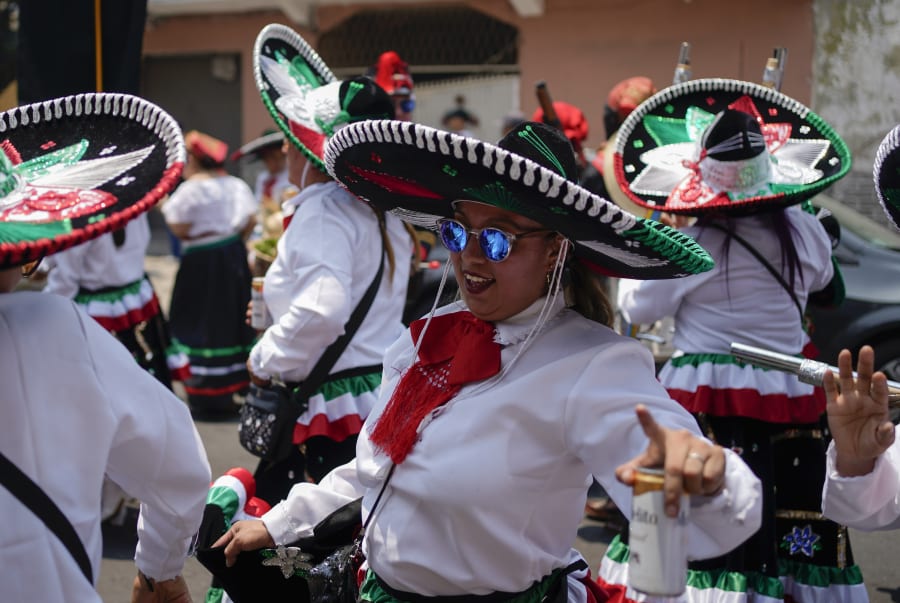Why Cinco de Mayo Is Celebrated in America, Though It's Not Mexican Independence Day
Cinco de Mayo, often mistaken as Mexico's Independence Day, holds a significant place in the hearts of Americans. Despite its historical roots in Mexico, the celebration of Cinco de Mayo has become deeply ingrained in American culture, marked by vibrant festivities, parades, and culinary delights. In this article, we delve into the reasons why Americans commemorate Cinco de Mayo and the cultural nuances behind this festive occasion.
Understanding Cinco de Mayo
What is Cinco de Mayo?
Cinco de Mayo, translating to the fifth of May in Spanish, commemorates the Mexican army's victory over French forces at the Battle of Puebla on May 5, 1862.
Historical Significance
The Battle of Puebla was a pivotal moment in Mexican history, symbolizing Mexico's resilience and determination in the face of foreign intervention.
Misconceptions about Cinco de Mayo
Despite its historical significance, Cinco de Mayo is often misunderstood as Mexico's Independence Day, which is celebrated on September 16th.
Historical Background
The Battle of Puebla
Led by General Ignacio Zaragoza, the Mexican army, outnumbered and ill-equipped, successfully defended the city of Puebla against the French forces, bolstering Mexican morale and national pride.
Legacy and Cultural Impact
While the victory at Puebla did not ultimately prevent French occupation of Mexico, it served as a rallying cry for Mexican resistance and inspired a sense of unity among its people.
Cinco de Mayo in the United States
How did Cinco de Mayo become popular in the US?
Cinco de Mayo gained traction in the United States during the Civil Rights Movement of the 1960s, as Chicano activists embraced the holiday as a symbol of Mexican identity and pride.
Celebrations and Traditions in the US
Today, Cinco de Mayo is celebrated across the United States with lively festivities, including parades, street fairs, mariachi music, traditional Mexican dances, and, of course, indulgent feasts featuring tacos, enchiladas, and margaritas.
Cultural Significance
Representation of Mexican Culture
Cinco de Mayo serves as an opportunity to showcase and celebrate Mexican culture, from its rich history and heritage to its vibrant art, music, and cuisine.
Importance of Cultural Diversity
The popularity of Cinco de Mayo in the United States reflects the country's diverse tapestry, emphasizing the importance of cultural exchange and understanding.
Commercialization and Controversy
Commercialization of Cinco de Mayo
While Cinco de Mayo celebrations are a testament to Mexican culture, they have also become heavily commercialized, with businesses capitalizing on the holiday to promote sales and consumption.
Criticisms and Controversies Surrounding Celebrations
Some critics argue that the commercialization of Cinco de Mayo perpetuates stereotypes and dilutes its historical significance, overshadowing the true meaning of the holiday.
Conclusion
In conclusion, Cinco de Mayo holds a special place in the hearts of Americans, serving as a vibrant celebration of Mexican culture and resilience. While it may not be Mexico's Independence Day, it remains an important occasion for reflection, unity, and appreciation of diversity.
FAQs about Cinco de Mayo
Is Cinco de Mayo a national holiday in Mexico?
No, Cinco de Mayo is not a national holiday in Mexico. It is primarily celebrated in the state of Puebla, where the Battle of Puebla took place.
What are some traditional foods eaten on Cinco de Mayo?
Traditional foods enjoyed on Cinco de Mayo include tacos, tamales, enchiladas, guacamole, and margaritas.
How do people in Mexico celebrate Cinco de Mayo?
In Mexico, Cinco de Mayo is celebrated with military parades, reenactments of the Battle of Puebla, and cultural performances.
Are there any historical inaccuracies associated with Cinco de Mayo?
Yes, there are some misconceptions and inaccuracies surrounding Cinco de Mayo, including the belief that it marks Mexico's Independence Day.
How can individuals celebrate Cinco de Mayo respectfully?
To celebrate Cinco de Mayo respectfully, individuals can educate themselves about its historical significance, support authentic Mexican businesses, and engage in cultural exchange with sensitivity and respect.


0 Comments